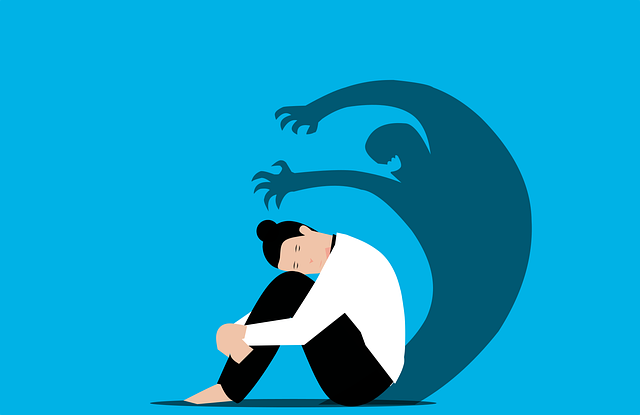Louisville Trauma Therapy offers a unique, holistic approach to healing trauma by merging cognitive behavioral techniques with mindfulness practices, addressing both mental and physical responses to stress. By challenging negative thought patterns and adopting positive affirmations, clients gain resilience and control over their well-being, as backed by research. This therapy empowers individuals to navigate stressful situations, fostering emotional balance, optimism, and overall mental health improvement through specific exercises like reframing negative thoughts and mindfulness practices. Consistent practice of these techniques can dramatically enhance well-being and resilience, normalizing the search for mental health support.
“Discover the transformative power of positive thinking with our comprehensive guide, designed to help individuals navigate recovery and cultivate resilience. This article explores Louisville Trauma Therapy as a framework for personal growth, delving into the science behind positive mindset shifts. We’ll uncover common negative thought patterns and equip you with practical exercises to enhance well-being. Learn how to integrate positivity into daily life, fostering lasting benefits and a more fulfilling existence.”
- Understanding Louisville Trauma Therapy: A Framework for Positive Change
- The Power of Positive Thinking: Unlocking Resilience and Well-being
- Identifying Negative Thought Patterns: Recognizing the Barriers
- Practical Exercises for Cultivating a Positive Mindset
- Integrating Positivity into Daily Life: Sustaining Long-term Benefits
Understanding Louisville Trauma Therapy: A Framework for Positive Change

Louisville Trauma Therapy offers a powerful framework for individuals seeking positive change and healing. This therapeutic approach is specifically designed to help people navigate through traumatic experiences, focusing on both the mind and body’s response to stress. By understanding the complex interplay between trauma and mental health, this therapy empowers individuals to take control of their well-being.
The practice incorporates various techniques from cognitive behavioral therapy and mindfulness practices, emphasizing the mind’s capacity for resilience and adaptation. It encourages clients to challenge negative thought patterns associated with trauma, replacing them with positive affirmations and reframing strategies. This process is instrumental in managing stress and promoting a healthier mindset, as supported by extensive Mental Health Policy Analysis and Advocacy research. Adopting Mind Over Matter principles, individuals can actively shape their responses to stressful situations, fostering a sense of empowerment and overall well-being.
The Power of Positive Thinking: Unlocking Resilience and Well-being

The power of positive thinking is a transformative concept that has gained significant attention in the field of mental health, particularly with Louisville Trauma Therapy practitioners. Cultivating a positive mindset isn’t just about feeling good; it’s a tool that can unlock resilience and enhance overall well-being. When individuals embrace positive thinking, they begin to shift their perception of challenges, transforming them into opportunities for growth and learning. This simple yet profound change in perspective can significantly impact mood management, enabling people to navigate through stressful situations with greater ease.
By focusing on positive thoughts, one can effectively reduce stress levels and improve mental fortitude. Louisville Trauma Therapy techniques often incorporate communication strategies and stress reduction methods that emphasize the benefits of positive thinking. These practices help individuals develop coping mechanisms that promote emotional balance and foster a more optimistic outlook on life, ultimately leading to improved mental health and overall quality of life.
Identifying Negative Thought Patterns: Recognizing the Barriers

Many individuals struggle with negative thought patterns that can significantly impact their emotional well-being and overall mental wellness. The first step in Louisville trauma therapy is recognizing these barriers, which often manifest as recurring negative thoughts or self-talk. These patterns can be subtle but powerful, affecting one’s perception of themselves and the world around them. For instance, a person might find themselves caught in a cycle of self-criticism, where every mistake or failure is magnified, leading to feelings of inadequacy and depression prevention challenges.
Identifying these thought distortions is crucial for developing effective coping strategies. By understanding the specific negative thought patterns, individuals can begin to challenge and replace them with more positive and realistic ones. This process, often facilitated by mental wellness coaching programs, empowers folks to take control of their minds, fostering a sense of resilience and emotional well-being promotion. It’s about learning to navigate through these intricate thoughts and ultimately revolutionizing one’s mindset.
Practical Exercises for Cultivating a Positive Mindset

Cultivating a positive mindset is an accessible and powerful tool for enhancing well-being, and Louisville Trauma Therapy offers practical exercises to help individuals embrace this transformation. One such exercise involves reframing negative thoughts into more constructive ones. For instance, instead of dwelling on “I can’t handle this situation,” one could reframe it as, “This presents a challenge, but I have the resources to overcome it.” This simple shift in perspective encourages resilience and empowers individuals to face obstacles with a positive outlook.
Additionally, mindfulness practices are integral to positive thinking. The Stress Management Workshops Organization emphasizes the importance of being present and observing thoughts without judgment. Through regular meditation or deep breathing exercises, individuals can learn to detach from negative thought patterns, fostering mental clarity and emotional stability. These practices, rooted in Mind Over Matter principles, have been shown to significantly improve overall mental health and are readily available through various trauma support services.
Integrating Positivity into Daily Life: Sustaining Long-term Benefits

Incorporating positive thinking exercises into daily routines can significantly enhance overall well-being and foster resilience, especially for individuals navigating challenging life situations. Louisville Trauma Therapy emphasizes the power of positivity as a healing tool, encouraging clients to adopt strategies that promote mental health and emotional balance. By integrating these practices into everyday life, people can cultivate a more optimistic outlook, which has been linked to improved mental fortitude and reduced stress levels over time.
Sustaining long-term benefits requires consistent effort and commitment. Mental Health Policy Analysis and Advocacy highlights the importance of accessible resources and support systems in encouraging individuals to maintain positive thinking habits. Communication strategies, as explored in Risk Assessment for Mental Health Professionals, play a pivotal role in fostering connections that enable open dialogue about mental health challenges. This creates an environment where seeking help is normalized, leading to better outcomes for those engaging in positive thinking exercises and similar therapeutic practices.
Louisville Trauma Therapy offers a comprehensive framework for individuals seeking positive change and enhanced well-being. By understanding the power of our thoughts and identifying negative thought patterns, we can begin to cultivate a more positive mindset. The practical exercises outlined in this article provide a toolkit to navigate and transform these patterns, ultimately fostering resilience and improving overall mental health. Integrating positivity into daily life is key to sustaining long-term benefits, allowing individuals to thrive and lead more fulfilling lives.














